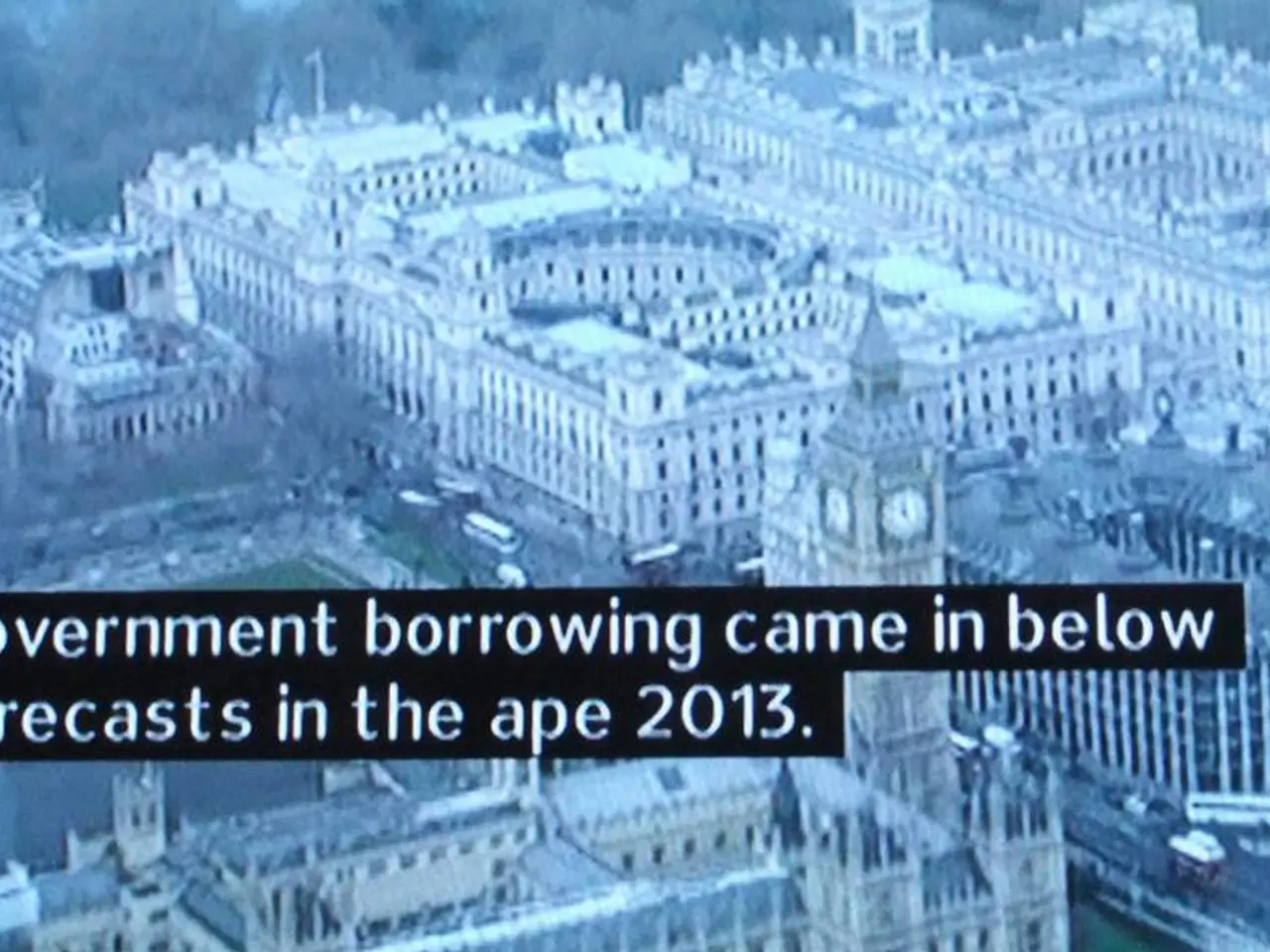Senate forbids placement of governors' and MCAs' images on public works
RevisedArticle:
Kenya's Senators take a stand against personal branding on public projects and government vehicles. They argue that the practice is a form of personalization of public resources, giving the impression of individual ownership, which is unethical and against the law.
The Senators' stance stems from a petition by Laban Omusundi, a Senate activist, who pointed out that all County-funded projects are adorned with portraits, images, and names of Governors and Members of County Assemblies, contrary to Article 75(1) of the Kenyan Constitution.
Wajir Senator Sheikh Abbas, who chairs the Senate Devolution and Intergovernmental Relations Committee, contends that such practices are in contravention of the Constitution, the Public Service (Values and Principles) Act, the Public Officer Ethics Act, and the Leadership and Integrity Act.
The Senate Committee, in its report, says that using public funds to brand projects and vehicles with the names or images of public officers amounts to misuse of public resources and goes against principles of transparency and prudent financial management.
The Committee calls for stricter compliance with constitutional and statutory provisions and urges oversight institutions like the Ethics and Anti-Corruption Commission (EACC), the Office of the Auditor-General, and the Controller of Budget to ensure enforcement. These institutions should also provide clear advisories to public officers on the proper use of public funds, conduct audits and investigations, and take appropriate disciplinary action against misuse.
Additionally, the Committee advocates for proper addressing and naming of county infrastructure rather than branding it with individual identities. This move aims to foster accountability, prevent personal advertising, and promote public ownership.
- Say Goodbye to Egos on Projects: Senate Takes Action against Self-Promotion
- Courts Block MPs from Retaining Constituency Development Fund
- MPs Clash over Motion Targeting Gachagua over Protest Anarchy
- MPs will Have to Embrace a Future without Constituency Development Fund
Keep Reading
The report argues that branding public resources with individual names or images creates the impression of individual ownership, which contradicts the principles of transparency and accountability.
The National Transport and Safety Authority (NTSA) mandates that all public service vehicles must display the name of the SACCO or company under which they operate, and the branding should be clear, visible, and without graffiti or offensive decorations. Public institutions and project implementers must adhere to the National Construction Authority Site Board Guide, which governs information display at project and construction sites. Regulatory agencies are tasked with monitoring and enforcing compliance to prevent unauthorized branding or personalization.
The Senate's decision follows increasing concerns over the use of taxpayer funds to boost individual political careers instead of serving the public interest. Omusundi argues that by allowing political elites to promote themselves on public-funded projects, they get to perpetuate their political egos without accountability.
Read More* Ruto Names New Army and Air Force Chiefs* Former Chief Justice Maraga: My Security Withdrawn* Remember Elin Nordegren? Check Out Her New Look* President Responds to Calls for Ruto's Resignation* Inquest into Police Killings Demanded by the Opposition
"Why should politicians be allowed to brand taxpayers' funded projects with their respective portraits, images, or names when Article 231(4) of the Constitution disallows the portrait of any individual on the currency?" questions Omusundi. He believes that it's high time to reject political self-aggrandizement and uphold the principles of accountable governance and public ownership.
Sources:1. NTSA Branding Regulations2. NTSA Graffiti Regulations3. National Transport and Safety Authority: Frequently Asked Questions4. Constitution of Kenya - Article 75(1)5. Traffic Act (Registration Plates) Rules
- The Senators' concern about personal branding on public projects stems from the contradiction it creates with the principles of transparency and accountability, especially when it comes to the use of taxpayer funds, as it can be perceived as a means for politicians to promote their individual political careers.
- The Senate's report on the use of public funds for self-promotion emphasizes that branding public resources with individual names or images contradicts the principles of transparency and accountability, and questions why such practices are allowed when Article 231(4) of the Kenyan Constitution disallows the portrait of any individual on the currency.







